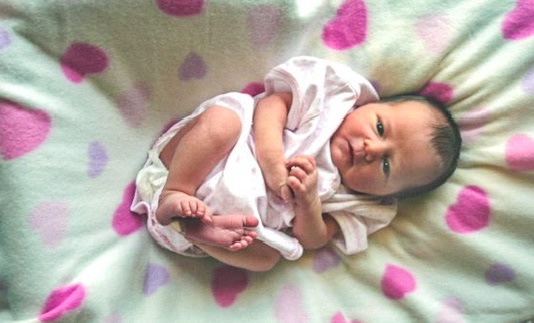My first introduction into the world of play dates was a shocker.
Several years ago, I visited my friend with my first child, who was then 7 months old. It was exciting to bring our children together for the first time. I had been living overseas and wasn’t around to witness the parenting part of my friend.

About 30 minutes into our visit, her little girl belted my baby with a toy. My friend offered in her sweetest, gentlest, can’t-get-sappier-than-that voice, “Lucy? We don’t hit.”
Her little girl giggled and proceeded to swing again. I stepped in and said, “No, Lucy.”
Startled and annoyed, my friend responded firmly, “Marion, we don’t say ‘no’ in this household.”
I held my tongue and pulled my child away from the 2-year-old bruiser, wondering what the heck was going on. I’m not an advocate of hitting as punishment, but what about “time outs”? Or speaking in a tone the lets the child know, “You did something wrong.”
What kind of scarring do you think we’ll inflict if we say “no”?
A year later, she came to visit me. This time, young Lucy pushed my son down half a flight of stairs. My friend didn’t witness the assault, but my husband and I did. My friend refused to believe her daughter would do it on purpose but offered, again in a gentle voice, “We don’t push.”
Positive discipline, she called it, a product of modern parenting. She touted her approach as a way to empower and boost confidence in her child. She offered me a book and some suggestions. I offered back: “How about at least handing your kids some boxing gloves to soften the blows?”
Does positive discipline mean no discipline at all?
Is there some kind of Geneva Convention code for punishing the politically correct way? I’m more of a do-the-crime-get-the-time kind of parent.
Kids, especially toddlers, are not perfect, not self-monitoring and certainly not ready for 100 percent empowerment, nor are they ready to negotiate their own punishment. My children both have their “Rocky” moments. But I send a clear message that hitting, punching, hurling toys and spitting are off limits. I tell them the truth. If they behave like that, they’ll lose friends. They’ll lose toys; they’ll spend half their childhood warming the “time out” steps.
Who knew play dates would be so tough? I’ve had friends break up with play dates over clashing discipline philosophies. There is no easy way to tell parents their child is a hazard or that get-togethers resemble more of a “Fear Factor” episode than a positive social experience. But if a kid intentionally bites, spits or knocks another child down a set of stairs and the parent offers “Oh, silly Johnny” or a sweet-toned “we-don’t-sink-our-teeth-into-flesh” talk, I cringe and run the other way.
I now know better than to put my child in a situation where he may get beaten to a pulp or, just as bad, get the impression that this kind of behavior is acceptable.
My friend and I still get together, and both of us are aware and respectful of our differences in discipline. Our oldest children survived the turbulent toddler years. And we seem to be surviving the puzzling parenting years — friendship intact.
I’ve kept the books she sent me and actually pulled some good advice from them. I think she’s reading new ones, too. A few years after our first play date when her little girl bopped my younger son on the head, I recalled hearing the word “no” slip from her mouth.
There’s hope for us yet.